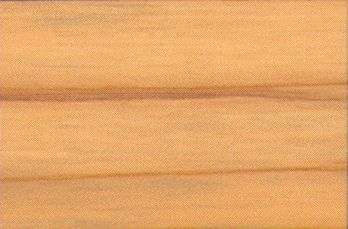
Amapa doce (Macoubea guianensis)
Family: Apocynaceae
Common names: Amapa doce, Huapa-caspi, Juapa-caspi, Liekapatoe, Mapa, Mappa, Molongo, Rokko-rokko, Roko-roko, Rokoroko, Sokko sokka, Sokko sokko, Yacosanango
Distributed in: Brazil, French Guiana, Peru, Suriname (Latin America)
Common uses: Boxes and crates, Food containers, Furniture, Joinery, Light construction, Matches, Mathematical instruments, Millwork, Plywood corestock, Plywood, Veneer
Tree size: Tree height is 20-30 m
Colors: the heart isPale brown, Yellow to golden-yellow to orangeand the sapwoodWhite to yellow
.The grain isWeak (figure), the textureMediumand the lusterLustrous
Natural durability: Susceptible to attack from termites (Isoptera), Very durable
Kiln Schedules: Drying (speed) is fast
Drying Defects: Slight surface checking, Slight twist/warp
Ease of Drying: Moderate
Tree Identification: Bole/stem form is not buttressed
Comments: General finishing qualities are rated as good
Boring: Easy
Cutting Resistance: Cutting Resistance with dry wood is easy
Gluing: Easy to glue
Nailing: Easy to nail
Planing: Planes well, to a good finish
Response to hand tools: Fairly Difficult to Difficult to Work
Polishing: Satisfactory;
- Numerical data Metric
- Numerical data English
- Strength properties
- References
 |
 |
 |
 |
| Item |
Green |
Dry |
Metric |
| Specific Gravity |
|
|
|
| Density |
|
416 |
kg/m3 |
| Bending Strength |
954 |
1473 |
kg/cm2 |
| Crushing Strength |
212 |
362 |
kg/cm2 |
| Hardness |
|
144 |
kg |
| Impact Strength |
|
|
cm |
| Shearing Strength |
|
62 |
kg/cm2 |
| Stiffness |
83 |
97 |
1000 kg/cm2 |
| Tangential Shrinkage |
6 |
|
% |
| Radial Shrinkage |
3 |
|
% |
| Weight |
400 |
368 |
kg/m3 |
| Maximum Load |
|
|
cm-kg/cm3 |
| Toughness |
|
|
cm-kg |
| Static Bending |
|
|
kg/cm2 |
|
 |  |  |  | | Item | Green | Dry | English | | Bending Strength | 13576 | 20956 | psi | | Density | | 26 | lbs/ft3 | | Hardness | | 319 | lbs | | Maximum Crushing Strength | 3027 | 5157 | psi | | Shearing Strength | | 882 | psi | | Stiffness | 1188 | 1383 | 1000 psi | | Weight | 25 | 23 | lbs/ft3 | | Radial Shrinkage | 3 | | % | | Tangential Shrinkage | 6 | | % | | Volumetric Shrinkage | 8 | | % | |
Density (dry weight) = 23-30 lbs/cu. ft.
Shrinkage, Radial = very small
Shrinkage, Tangential = very small
Shrinkage, Tangential = small
Shrinkage, Tangential = moderate
Shrinkage, Radial = small
Shearing strength (parallel to grain) = very low
Hardness (side grain) = very soft
Density (dry weight) = 31-37 lbs/cu. ft.
Bending strength (MOR) = high
Shrinkage, Volumetric = small
Shrinkage, Tangential = fairly large
Shrinkage, Radial = moderate
Modulus of Elasticity (stiffness) = very low
Modulus of Elasticity (stiffness) = low
Max. crushing strength = medium
Max. crushing strength = low
Berni, C.A., Bolza, E., Christensen, F.J.,1979,South American Timbers - The Characteristics, Properties and Uses of 190,Species,C.S.I.R.O Div. Building ResearchFanshawe, D.B.,1954,Forest Products of British Guiana Part 1 Principal Timbers,Forest Department British Guiana Forestry Bulletin (New Series 2nd,Edition,No.1Record, S.J., Hess, R.W.,1943,Timbers of the New World,Yale University PressSurinam Forest Service,1952,Surinam Timber - A Summary with brief descriptions of the main timber,species of Surinam,Surinam Forest ServiceWangaard, F.F., W.L. Stern, and S.L. Goodrich. 1955. Tropical Woods - Properties and Uses of Tropical Woods, Volume V, No. 103. School of Forestry, Yale University, New Haven, Connecticut.Wood, B., Calnan, D.,1976,Toxic Woods,British Journal of Dermat 94 Suppl. 13
|








